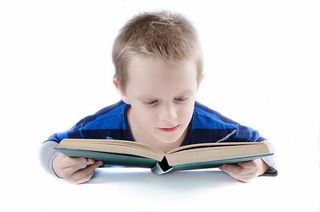Sleep
Intelligence, Sleep, and School Achievement
How different sleep patterns affect children's IQs
Posted December 27, 2016

Many factors contribute to children’s academic performance, including those related to the quality of instruction, the curriculum itself, the school and home environment, and factors intrinsic to individual children. When performance of a child is below expectations, assessments are often administered to determine the causes. On many occasions, school psychologists administer tests of achievement and ability. The original purpose of the first IQ tests, the Binet scales, over 100 years ago was to identify children who warranted specialized instruction. In spite of their shortcomings and many criticisms directed at their use, especially over the past few decades, there remains no better sole predictor of a child’s expected level of achievement than an individually administered intelligence test.
The focus of this blog has been to disseminate recent scientific findings that relate various aspects of children’s sleep to their cognitive functioning and their performance at school. In a study recently published, our lab group examined the relations between sleep and academic achievement for children at different levels of intelligence. The participants were 280 children around 10 years old. Sleep was assessed objectively over seven nights with actigraphs they wore on their wrists to measure both sleep duration and quality of sleep. Intelligence was assessed by administration of a short version of the Woodcock-Johnson III Tests of Intelligence, and achievement measures were obtained from a group-administered state test of reading and math. Variables controlled for in analyses included age, sex, ethnicity, SES, puberty, body mass index, single-parent status, and chronic illness. No child had a documented intellectual disability or sleep disorder.
As expected, for the group overall, intelligence showed a strong positive correlation with achievement (r = .77). The most interesting result was that for children of higher intelligence, that relation was of smaller magnitude in the presence of sleep quality (not quantity) measures. The correspondence between intelligence and achievement did not differ based on sleep measures for children with lower intelligence.
The effect was of modest size, and needs replication, but it shows that while children with higher intelligence almost always perform better than those with lower intelligence, poor sleep in children with higher intelligence may be preventing them from attaining their full academic potential. Intelligence is the factor with the highest relation of any other to achievement. Our finding of a strong relation overall is characteristic of the body of research going back over a century. But although IQ often accounts for about half of the variance in academic achievement (shared variance is calculated by multiplying the correlation coefficient by two), there is much unshared variance that researchers have tried to account for. We have proposed that sleep is one of those factors, and in this sample it seemed that higher IQ children’s performance is held down when they sleep poorly.
I have argued that sleep one factor that relates to the achievement gap between children from lower and higher social class, as there is evidence that children living in poverty (defined in numerous ways) have lower school performance and poorer sleep than their middle and upper-class peers (Buckhalt, 2011). The implication is that by improving lower class children’s sleep, they may perform better in school and help narrow the achievement gap that has been so concerning and longstanding. The results for this study show that children with higher IQs may have even more to gain by improving sleep. If sleep for children of all social classes was improved, the achievement gap might still persist.
Buckhalt, J. A. (2011). Insufficient sleep and the socioeconomic status achievement gap. Child Development Perspectives, 5(1), 59-65.
Erath, S. A., Tu, K. M., Buckhalt, J. A., & El‐Sheikh, M. (2015). Associations between children's intelligence and academic achievement: the role of sleep. Journal of Sleep Research, 24(5), 510-513.


